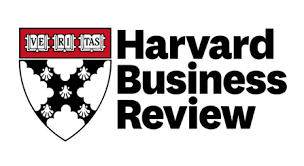
Extractive summaries of and key takeaways from the articles curated from TOP TEN BUSINESS MAGAZINES to promote informed business decision-making | Week 294 | April 28-May 4, 2023

How to Answer “What Are Your Strengths and Weaknesses?”
By Joel Schwartzberg | Harvard Business Review | May 02, 2023
Listen to the Extractive Summary of the Article
Some questions come up again and again in job interviews. At the top of the list: “Tell me about yourself,” “Why do you want to work here?” and “What are your greatest strengths and weaknesses?” The strengths-and-weaknesses question may seem like the easiest of the bunch for job seekers to answer, given the classic responses associated with each: My strengths? Creativity! Problem-solving! Collaboration! My weaknesses? Perfectionism! I work too hard! I care too much! Though these answers may be true, they may also come across as trite and unoriginal, even scheming. Some tips to tackle this popular interview question in a way that leaves an original, authentic, and meaningful positive impression are the following. It’s best to prepare two answers for each question, even though you’ll probably only use one.
How to Describe Your Strengths. When you share your personal strengths in an interview, the conversation is still as much about their needs as your abilities, so follow these rules to ensure your skills come across as not only impressive, but relevant, distinct, and proven: focus on a strength that is listed in the job description; reframe the skill to make your response as specific as possible; once you pick your strength, and practice expressing it in four parts (the strength, a real-life example of that strength, an impact of that strength, and how much you enjoy leveraging that strength).
How to Describe Your Weaknesses. The key to sharing your greatest weaknesses in an interview is to be authentic but not self-sabotaging. An interviewer may remember your weakness and hold it against you — even subconsciously — so you need to limit and mitigate any potentially harmful impressions. Some of the tips are: Reimagine “weakness” as a “challenge,” even replacing the word “weakness” with “challenge” in your answer; choose skills that are easily correctable through training or commitment; Avoid clichés (stay away from overdone examples like “perfectionism” and “being a workaholic); Choose a challenge that is not core to the job’s responsibilities; and Once you pick a challenge, practice expressing it in three parts (the weakness, minor consequences of the weakness, and your eagerness to address the weakness).
2 key takeaways from the article
- When you share your personal strengths in an interview: focus on a strength that is listed in the job description; reframe the skill to make your response as specific as possible; once you pick your strength, and practice expressing it in four parts (the strength, a real-life example of that strength, an impact of that strength, and how much you enjoy leveraging that strength).
- The keys to sharing your greatest weaknesses in an interview are: reimagine “weakness” as a “challenge,” even replacing the word “weakness” with “challenge” in your answer; choose skills that are easily correctable through training or commitment; avoid clichés; choose a challenge that is not core to the job’s responsibilities; and once you pick a challenge, practice expressing it in three parts (the weakness, minor consequences of the weakness, and your eagerness to address the weakness).
(Copyright)
Topics: Personal Development, Job Interviews
